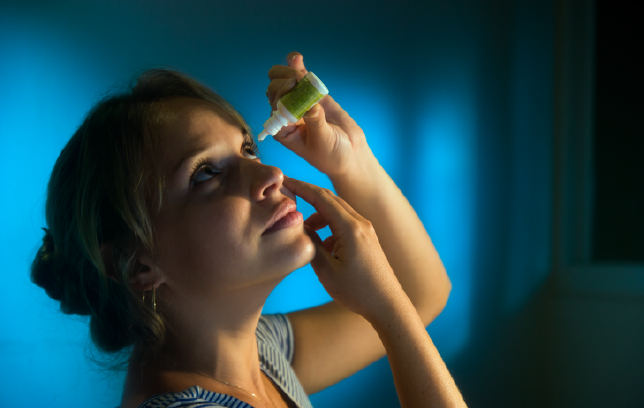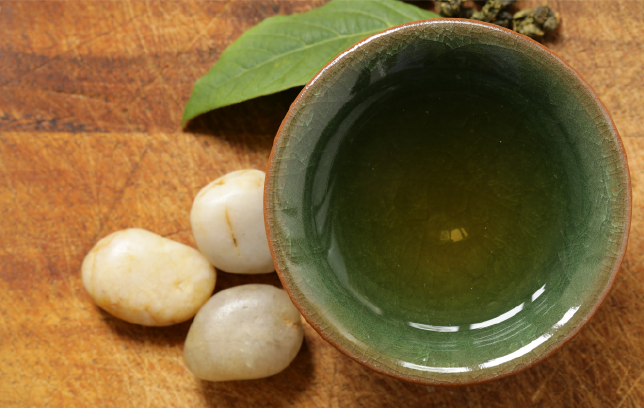‘Tis the season for eye health problems.
The Northwest Ohio winter comes bearing a variety of unique seasonal issues, like dry air and increased light sensitivity.
Thankfully there are a few things you can do to make sure your eye health doesn’t take a nosedive in the upcoming months. This list of five helpful eye tips will help you keep your eyes healthy and happy this wintry season.
Tip #1: Keep your eyes moistened. (Use eye drops if necessary!)
So protecting your eyes is important. But what do you really know about eye safety?

When your hands crack or lips chap, it’s easy to grab some soothing lotion or lip balm to take care of the problem. But how do you address eye dryness and irritation?
For most people, dry eyes are an uncomfortable nuisance. For others, chronic dryness and itchiness can cause severe irritation and damage to the eyes.
We all might crave the warmth of a radiator when the weather outside is frightful, but we must remember to consider our eye health and keep some distance between us and the heating system. Bundling up with layers rather than crowding around the heater might save you loads of eye discomfort.
Another way to counteract that dry air? A humidifier. It’ll add moisture to the airflow within your home.
If your eyes suffer from wintry dryness, it’s a good idea to invest in good over-the-counter eye drops. All you have to do is be sure to use it regularly to help keep your eyes lubricated.
If your eyes suffer from wintry dryness, it’s a good idea to invest in good over-the-counter eye drops. All you have to do is be sure to use it regularly to help keep your eyes lubricated.
And if you wear contact lenses, that might make the eye dryness worse, so ask your eye doctor about the right type of eye drops for you, or perhaps a lens solution, to help moisten your eyes and make the lenses comfortable.
Tip #2: Invest in a pair of prescription sunglasses. (Or two!)
For some people, winter is the perfect time for adventurous sports and activities: skiing, snowboarding, sledding — you name it.
But the real danger isn’t even the snow most of the time. Winter is notorious for being hard on the eyes, and we aren’t just talking about the cold winds that can rob them of moisture.
Just because the winter sun isn’t as hot as in summer doesn’t mean it can’t do significant damage. Snowy conditions actually double the sun’s effects, as ultraviolet (UV) rays both enter your eyes from above and reflect off the snow into your eyes.
Snow blindness is when your eyes get an overabundance of UV rays, followed by a temporary loss of vision.
This is why you always see winter sports professionals wearing goggles or sunglasses (even the Inuits developed shades to block the sun’s reflection off snow and ice!).
So if you’re planning on hitting the slopes, you’re better off being prepared. (See Tip #4 for more information.)
Even if you’re not a winter sports pro, you can still protect your eyes in between autumn and spring. Throw on your favorite pair of shades! And if you normally wear prescription glasses, a pair of prescription sunglasses is a great investment for the winter months.
In any case, be sure to wear sunglasses that block 99–100% of UV light, even on days that are overcast. And throw on a hat or visor if conditions are particularly bright.

Tip #3: Swap the coffee for tea — particularly green — and stay hydrated.
One of the biggest causes of dry, itchy eyes in the winter is dehydration, and the dry air indoors isn’t helping anything.
Thankfully, there’s one delicious solution to help keep your eyes moistened: green tea.
As far as health benefits go, green tea is one of the best beverages out there. It’s even called “the healthiest beverage on the planet.”
The reason? For starters, antioxidants like vitamin C, lutein and zeaxanthin help prevent heart disease and cancer.
Other awesome benefits of green tea include:
- Healthy bioactive compounds like polyphenols, which reduce inflammation and fight cancer
- HA lower caffeine dose than coffee, correlated to improved mood and brain function, including memory and reaction time
- HAnti-anxiety effects due to the amino acid L-theanine
But the protection green tea gives your eyes is the most striking.
Scientists are finding that drinking green tea can help keep your eyes sharper and healthier much longer. The tea leaves contain flavonoids, which contribute to the prevention of some types of glaucoma, cataracts and macular degeneration. One type of flavonoid even boosts UV ray protection in the retina.
You might be more of a coffee drinker, but with all the eye health benefits green tea touts, it might just be worth it to incorporate this super beverage into your day throughout the winter.
Water is essential for your eyes, too.
And while we’re on the subject of drinks with eye-related health benefits, don’t forget the most important beverage of all: water.
The percentage of water in the human body is well over half, so it’s no surprise that when we’re dehydrated, our eyeballs feel the negative effects.
Getting your daily dose of water moistens your corneas, keeping your eyes healthy and in working order.
For example, a lot of people at work forget to get their daily fill — and those in front of a screen (a growing number of us here in the 21st century) also forget to blink, which further irritates the eyes. We’re used to blinking 18 times a minute, but less than half that when in front of a screen.
During the winter, you’re inside way more often and more likely to be in front of a screen — at work or at home — so staying hydrated with H2O is of utmost importance.
Lubricating your eyes with artificial tears can help alleviate irritation, but also remember to blink and have water to drink!
Enjoying this article?
Get more like this sent to your inbox!
Tip #4: Be sure to wear glasses or goggles when participating in outdoor activities.
Like Tip #2 points out, winter brings a host of outdoor hazards that aren’t a concern the rest of the year. Ice, slush, falling snow and collected dirt and debris can all damage the eye’s soft tissue if you aren’t careful.
One way to protect your eyes from both outdoor hazards and harsh UV rays is to pick up a pair of prescription goggles with UV protection. If you plan on being outdoors this winter — and especially if you plan on participating in high-speed activities like skiing, snowboarding, snowmobiling or other sports-related fun — be sure to wear appropriate eye protection at all times.
Contact Perrysburg Eye Center today if you are interested in learning more about our prescription sunglasses or goggles for outdoor use this winter season.

Tip #5: Contact your optometrist immediately if problems become more than a nuisance.
This may seem like an easy one, but it’s also the one most people get wrong.
Dry, itchy eyes not only can cause irritation and inflammation, but they can also be a sign of something else going on with your eye tissue. Even worse, chronic dry eyes and the abrasion caused by dry eyelids opening and closing can cause scratching, clouding and longer-term issues with the tissue.
If you feel like the dryness and itching is becoming worse, or you begin to notice increased irritation or clouded vision, call Perrysburg Eye Center immediately and get in to see us.
And of course, whether or not you’re experiencing dry eye symptoms, make sure to keep up with the healthy vision facts and tips you should know.
Check in with Perrysburg Eye Center
An ounce of prevention is worth a pound of cure, and your eyes are no exception — especially when they’re at increased risk for dryness, irritation and UV damage this winter.
Take some precautions to keep your eyes happy and healthy this winter, and make sure to check in with the eye and vision experts at Perrysburg Eye Center at the first sign of trouble.
For more articles like these, sign up to our monthly newsletter and follow us on Facebook.
Get more information about quality eyewear and eye care by calling Perrysburg Eye Center at 419-874-3125, schedule a visit as a patient, and make sure to stop by our optical shop for the functional, affordable and fashionable eyewear!
